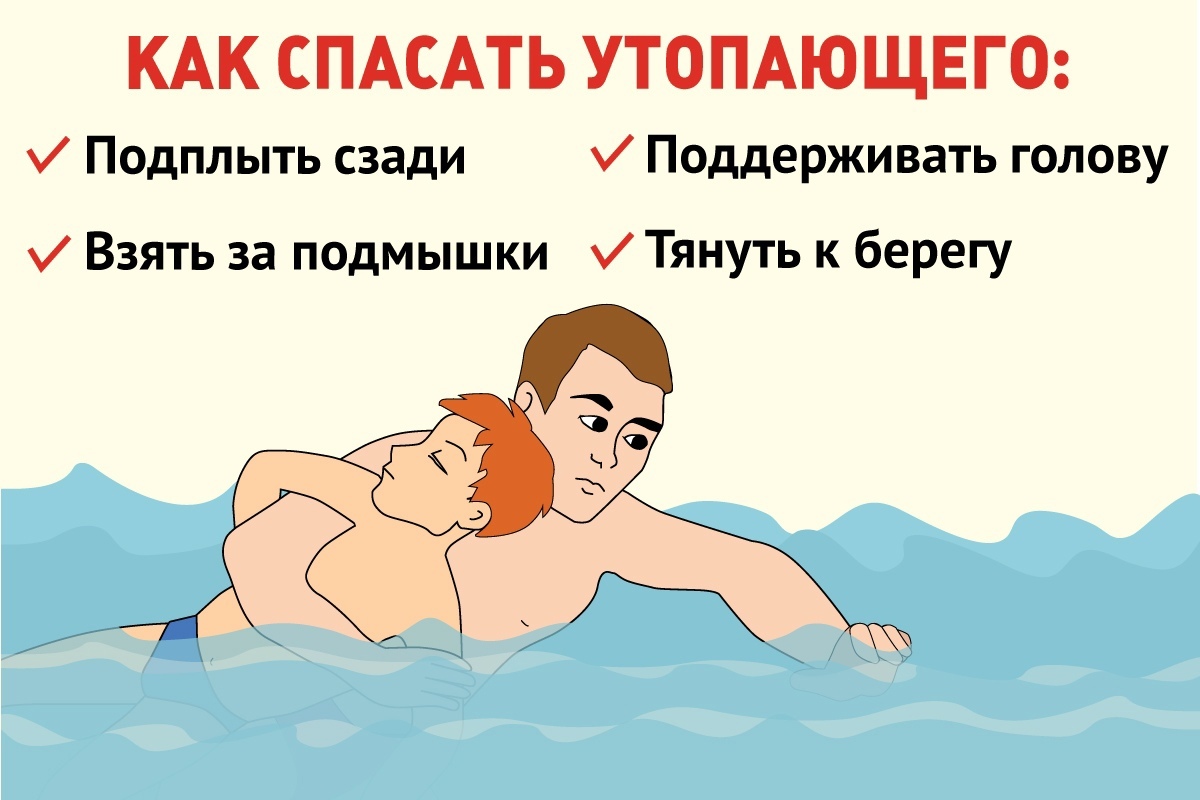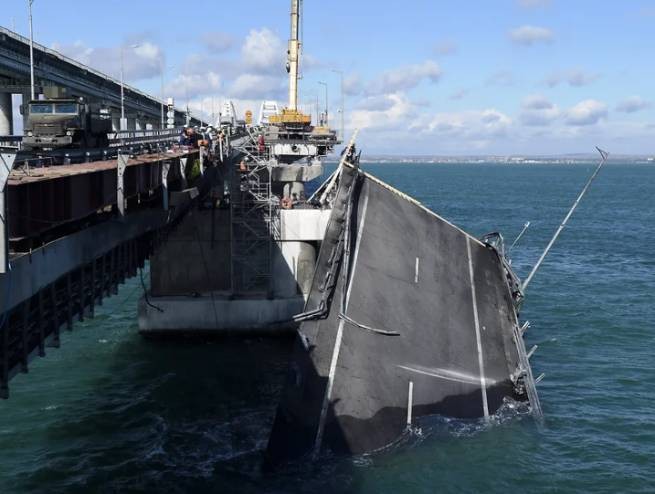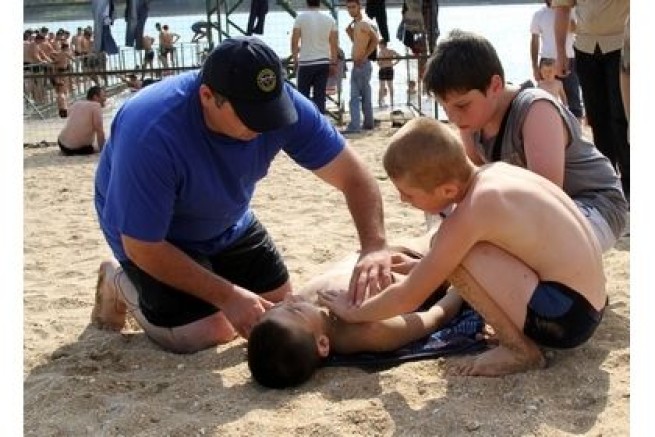Two small children drowned this weekend in the sea and in the pool. On Saturday afternoon, a 6-year-old boy was pulled from the sea in Megalo-Kavuri, who escaped the attention of his parents. The child was found unconscious in the water by bathers and a lifeguard on the beach. He was 20 meters from the shore and in shallow water.
A day later, in the basin of the Nea Makri region, a 10-year-old girl tragically died. According to the information, before going for a swim, the child ate. The girl’s body remained at the bottom for three minutes, until the alarm was raised and specialists rushed to help.
Drowning is the second leading cause of accidental death among children aged 1 to 14 in Greece, according to a report by Kathimerini.
In total, 386 fatal accidents occurred in 2022, of which 379 were at sea and 7 were in inland waters (in pools, etc.).
President of the Union of Rescue Schools of Greece Marios Myronakis talks about chronic problem, indicating that when the attention of parents is removed, there is a great danger to the life and health of their children.

“Parents should not let their children out of their sight, even if the conditions are perfect. If they can’t look after their child, someone else should look after them,” says Mr. Maronakis.
The expert notes that drawing conclusions from these tragedies, we understand How important is learning to swim?. “Unfortunately in Greece we have just started teaching children how to swim. Although in as part of the physical education course from 2020, swimming lessons are providedthere must be more activity on the part of the state and the parents themselves.
According to pediatric resuscitator Anastasios Hatzis, former coordinating director of pediatric intensive care at Agia Sophia, all statistics show that in case of fatal accidents at sea, it is all about prevention.
“Unfortunately, in most cases, when these children are found, it is often too late. According to international studies, the percentage of children who survived after resuscitation is one in 10, and in other cases it was already too late,” says Mr. Hatzis.
Commenting on the death of two children within 48 hours, Mr. Hatzis said that every time the same tragic story is repeated, children are left unattended and tragically die. To the question can swimming after eating be fatalthe pediatric resuscitator emphasized: “We always follow the unshakable rule a three-hour abstinence from swimming in the sea. Of course, studies have shown that food is never the only cause of drowning. Usually, when a tragedy happens, there is always some other reason.”
One hand radius rule: Mr. Hatzis points out that the general rule to be followed is that children, especially the youngest ones, should be kept “at arm’s length” from their parents. “Parents should not do things that will distract them from looking after their children in the water (chat with friends, “sit” on the phone). It is also wrong to think that if a child is dressed in inflatable sleeves or life jackets, then you can let him swim without supervision.‘, adds the doctor. Other basic rules are:
- Children should never swim alone.
- Do not enter the water if it is raining, thunderstorms, strong waves or currents.
- Do not dive in unfamiliar waters, especially from rocks.
- Do not allow the child to become hypothermic in the water (to blue lips and trembling in the body).
The pediatrician-resuscitator also notes that fins are not suitable for teaching a child to swim in the sea, since in fins children push their body only with their legs and therefore their hands are inactive (they do not train). Concerning tragic case of drowning, you should know that in adults it looks different than in children. Adults and adolescents try to raise their heads to the surface and breathe, while in In the case of children, they usually float motionless on the surface face down.
“When a person is helplessly immersed in water, after a short breath hold for 2-3 minutes, he begins to take convulsive breaths. This leads to relaxation and, therefore, the entry of water into the lungs, which, in turn, will cause damage to the alveoli (capsular tissue of the lungs),” notes Mr. Hatzis.

Attention! The difference between the types of drowning in fresh and sea water.
1. Drowning in fresh water.
Upon penetration into the lungs, fresh water is quickly absorbed into the blood, since the concentration of salts in fresh water is much lower than in the blood. This leads to blood thinning, an increase in its volume and the destruction of red blood cells. Sometimes pulmonary edema develops. A large amount of stable pink foam is formed, which further disrupts gas exchange. The function of blood circulation stops as a result of a violation of the contractility of the ventricles of the heart.
2. Drowning in sea water.
Due to the fact that the concentration of dissolved substances in sea water is higher than in the blood, when sea water enters the lungs, the liquid part of the blood, together with proteins, penetrates from the blood vessels into the alveoli. This leads to thickening of the blood, an increase in the concentration of potassium, sodium, calcium, magnesium and chlorine ions in it. A large amount of fluid is heated in the alveoli, which leads to their stretching up to rupture. As a rule, pulmonary edema develops when drowning in sea water. That small amount of air that is in the alveoli contributes to the whipping of the liquid during respiratory movements with the formation of a stable protein foam. Gas exchange is sharply disturbed, cardiac arrest occurs.
Extracting water from the lungs is a myth. The doctor points out that if we are faced with drowning in the sea, we always have to do resuscitation on land. “Most people believe, and this is a big mistake, that an unconscious person needs to pump water out of the lungs during chest compressions. We must always keep in mind two scenarios. If a person can breathe on his own, then you calm him down and put on an oxygen mask for him. If he was pulled out of the water unconscious, then you give him cardiopulmonary resuscitation, ”he concludes.







More Stories
Where will Greeks go for Easter: the best domestic and foreign destinations
Fine 1200 euros for the bad habit of Greeks at Easter, who is at risk
UK: human trial of melanoma vaccine started